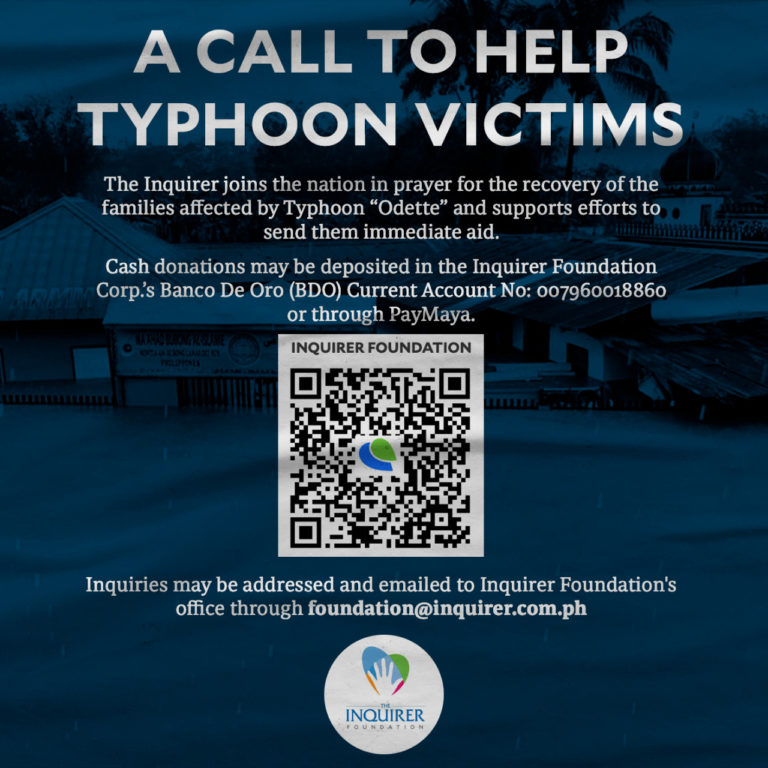An unprecedented calamity
I have lived my entire life in Surigao in the northeastern corner of Mindanao, and because we face the Pacific Ocean, we’ve experienced many typhoons over the decades. Supertyphoon “Odette” is the most destructive storm I have seen in my 39 years. The last extremely destructive storm I can remember was back in 1984 when I was just a small boy.
I currently work as a project manager for World Wide Fund for Nature Philippines (WWF-Philippines) handling the SMILE (Solar CoMmunity-based Island Tourism and Livelihood Energizer) energy transition project on four island communities: Kanihaan and Cab-ilan in the Dinagat Islands, and Halian and Anajawan in Siargao Islands. Part of this project is climate change adaptation planning for those remote communities.
Our local coordinator for the island community of Halian Island, Richmond Seladores, told me that people are resorting to eating coconuts due to the lack of food supplies on their island. Fishing boats for catching fish and getting supplies from the mainland have been destroyed. Residents fashion makeshift tents from scrap so they have places to sleep.
Article continues after this advertisementDuring the storm, Seladores rescued some children and took shelter inside a bathroom with concrete walls. The roof was blown away, but they survived inside the bathroom. Reports from the local government indicate that 90 to 95 percent of all buildings on the island were damaged.
Decades facing typhoons that come from the Pacific has made the people of the Caraga region aware of the destruction they bring. Ahead of Odette’s landfall, we prepared for the storm and complied with evacuation orders. But the strength of the winds and the damage it caused was completely unexpected.
On some islands, which are off-grid and dependent on fishing and farming for livelihood, the strongest concrete structures are the barangay hall and the school. These remote communities are already left behind in terms of development, but the storm knocked out electricity and communication lines, making it more difficult to help them recover. The local vice mayor said that the rebuilding can begin in about four to five months, setting the entire community back in their progress and development.
Article continues after this advertisementTo move forward amid the climate crisis, all levels of the government must implement climate adaptation measures, including infrastructure, that can withstand storms. Scientific studies about the climate show that global warming will bring stronger storms. This is a clear sign that our infrastructure needs to be climate-resilient.
WWF-Philippines’ SMILE program is a consortium project with the University of the Philippines Asian Institute of Tourism, Association of Isolated Electric Cooperatives-Missionary Green Energy Corp., Siargao Electric Cooperative, Dinagat Island Electric Cooperative, Municipality of Del Carmen, and Provincial Tourism Council of Dinagat Islands. It is also supported by the EU. The partnership is looking into shifting from traditional power transmission lines into an underground cabling system. Even as we try to shift to renewable energy for the long term, the worst effects of the climate crisis are already bearing down on us.
My entire life has been spent working in the Caraga region, and I’ve experienced firsthand the daily problems of seeking food, shelter, sources of livelihood, and striving for a better future. The climate crisis, of which Odette is clearly a harbinger, is a quagmire that will swallow entire populations, forcing them into an endless cycle of destruction and poverty.
WWF-Philippines has started its “Oplan PANDAmayan” donation drive and disaster relief effort for the island communities we work with. But from our perspective, emergency relief is only a short-term solution to the bigger long-term problem of the climate crisis. The island communities in the Philippines are already on the margins of society. If we are to save them from a future where the ending is grim, we need to act on the climate crisis now to change the ending.
—————-
Joffrey Maglinte is a project manager for WWF-Philippines based in Surigao del Sur. He works for the island communities in Dinagat and Siargao for the SMILE energy transition project.

















